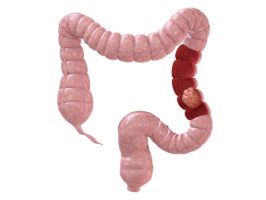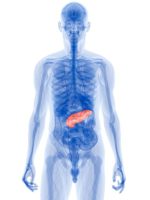חברת סנופי-אבנטיס מפרסמת היום שתי הודעות חשובות הנוגעות לטקסוטר (docetaxel ) . הידיעה הראשונה המצ”ב להלן היא על קבלת אישור מה-FDA לשימוש בתרופה בסרטן קיבה מתקדם (בשילוב עם ציספלטין ו-5-fluorouracil . ההודעה השנייה מדווחת על קבלת חוות דעת חיובית של הועדה האירופאית לרישוי תרופות לאותה אינדיקציה.
יש לציין, שבארץ, ההתוויה לסרטן קיבה כבר אושרה ע”י משרד הבריאות הישראלי.
אישור ההתוייה מבוסס על מחקר ה-TAX 325 שבוצע במס’ מרכזים ב-445 חולים בסרטן קיבה מתקדם, שבו נמצא שטיפול בטקסוטר בשילוב עם ציספלטין ו-5-fluorouracil הפחית את הסיכון לתמותה ב-23% בהשוואה לטיפול סטנדרטי. האישור פותח אופציה טיפולית חדשה במחלה שעד כה ניתן היה לטפל בה באופן מוגבל.
לטקסוטר כידוע התוויות מגוונות,לרבות סרטן ריאות מסוג NSCLC , סרטן השד וסרטן הערמונית. רק לפני מס’ ימים דיווחנו על מחקר חדש אשר מצא כי במטופלים עם סרטן ערמונית שאינו מגיב לטיפול הורמונלי, טיפול בדוקטקסל (TAXOTERE) כקו ראשון מספק תוצאות טובות יותר מאשר טיפול במיטוקסנטרון (MITOXANTRON).
לפניכם הודעות החברה , באנגלית:
TAXOTERE® RECEIVES U.S. FDA APPROVAL FOR USE IN ADVANCED STOMACH CANCER
TAXOTERE®-based regimen demonstrates a 23% reduction in the risk of mortality
in patients with advanced stomach cancer
Paris, France March 23, 2006 Sanofi-aventis announced today that following a priority review of the supplemental new drug application (sNDA), the U.S. Food and Drug Administration (FDA) has approved TAXOTERE® (docetaxel) Injection Concentrate in combination with cisplatin and 5-fluorouracil for the treatment of patients with advanced stomach (gastric) cancer, including cancer of the gastro esophageal (GE) junction, who have not received prior chemotherapy for advanced disease. This is the first FDA approval of an advanced stomach cancer treatment demonstrating a survival advantage in more than a decade, thereby offering physicians and their patients an important new option for treating this devastating disease. This additional new drug application is also currently under review by the Committee for Medicinal Products for Human Use (CHMP) of the European Agency for the Evaluation of Medicinal Products (EMEA).
The FDA based its decision on results from the Tax 325 study, the largest international phase III clinical trial in previously untreated advanced stomach cancer involving 445 patients. Patients treated with the TAXOTERE®-based chemotherapy regimen (TAXOTERE® plus cisplatin and 5-fluorouracil, TCF) experienced a significant 23 percent reduction in the risk of death compared to patients who received a current standard treatment of cisplatin and 5-fluorouracil ( 23 CF), (median follow-up 23 months)
The median overall survival was significantly longer with the TAXOTERE®-containing regimen (9.2 vs 8.6 months, p=<0.02) with a hazard ratio of 1.29 (95% CI: 1.04-1.61). Time to disease progression was nearly two months longer in the TAXOTERE®-containing arm (5.6 vs 3.7 months, p=0.0004), hazard ratio 1.47 (CF/TCF 95% CI/ 1.19 -1.83).
For many years, patients with gastric cancer had limited options for the treatment of their disease, said Jaffer A. Ajani, MD, Professor, GI Medical Oncology, The University of Texas M. D. Anderson Cancer Center, Houston, Texas, Principal Investigator of the TAX 325 study With the approval of this TAXOTERE®-based regimen in this cancer, a new standard of treatment is now available for advanced gastric cancer patients.
About the TAX 325 Study
Locally advanced or metastatic stomach cancer has a poor prognosis with a low long-term survival of only 11.5 percent. This study was undertaken to evaluate the benefits of adding TAXOTERE® to a standard chemotherapy regimen. The primary study endpoint was time to tumour progression (TTP), which was significantly improved with TAXOTERE® based therapy (5.6 months) compared to standard treatment (3.7 months) with a 32 percent reduction in the risk of progression (log-rank test p=0.0004). The main secondary endpoint was to detect a statistically significant increase in overall survival. Other secondary objectives included response rate, time to treatment failure, duration of response, safety profiles, quality of life and disease related symptoms.
In total, 81.4 percent of the patients experienced at least one Grade 3-4 (severe) side effect with the TAXOTERE®- based regimen versus 75.4 percent in the control arm with neurtropenia being the most common Grade 3-4 side effect in the TAXOTERE®- based regimen. The most common (all grade) side effects associated with the TAXOTERE®- based regimen were anemia, neutropenia, diarrhea, and nausea. The most common (all grade) side effects associated with the cisplatin and 5-fluorouracil arm were anemia, neutropenia, nausea and vomiting. Primary prophylactic use of growth factor support (granulocyte-colony stimulating factor, G-CSF) was not allowed per the study protocol. G-CSF is a bone marrow growth factor that may be administered to reduce febrile neutropenia in patients receiving myelosuppressive chemotherapy. In the TAXOTERE® arm, febrile neutropenia and/or neutropenic infection occurred in 12 percent of patients receiving secondary prophylactic G-CSF compared to 28 percent who did not, which represents a 57 percent reduction.
These results were last presented at the American Society of Clinical Oncology (ASCO) annual meeting in 2005.
With this new indication, TAXOTERE® is now approved for six indications in the United States, and eight in Europe, in four different tumor types:
In Breast Cancer:
In the United States and in Europe TAXOTERE®, is approved for the treatment of patients with locally advanced or metastatic breast cancer after failure of prior chemotherapy,
TAXOTERE® is also approved in Europe in combination with doxorubicin for patients who have received prior cytotoxic therapy for this condition and in combination with capecitabine after failure of cytotoxic therapy which would have included anthracycline,
In Europe, TAXOTERE® is approved in combination with trastuzumab for the treatment of patients with metastatic breast cancer- over expressing Her2 receptor.
TAXOTERE® is approved in the U.S. and in Europe in combination with doxorubicin and cyclophosphamide (TAC regimen) for the treatment of patients with operable, node-positive breast cancer.
In Non-Small Cell Lung Cancer (NSCLC):
In the U.S. and in Europe, TAXOTERE®, in combination with cisplatin, is approved for the treatment of patients with unresectable, locally advanced or metastatic non-small cell lung cancer (NSCLC) who have not received prior chemotherapy for this condition,
In the U.S., TAXOTERE® is also approved, as a single agent, for the treatment of patients with locally advanced or metastatic NSCLC after failure of prior platinum-based chemotherapy.
In Prostate cancer:
TAXOTERE® is approved for use in combination with prednisone for the treatment of patients with androgen-independent (hormone-refractory) metastatic prostate cancer in the U.S. and in Europe
Stomach cancer claims the lives of more than 700,000 people worldwide each year, said Donna Vining, President, Gastro Esophageal Cancer Foundation, www.gecancer.org. The approval of Taxotere® for use in advanced stomach cancer contributes to the on-going efforts by the medical community to find treatment options that may improve outcomes for those suffering from this devastating disease.
About Stomach Cancer
Stomach cancer is the 4th most common type of cancer worldwide with more than 934,000 new patients every year. It is also the second most common cause of cancer death worldwide; with more than 700,000 deaths annually. There were about 22,800 new cases of stomach cancer in the
United States in 2005. In Europe, this number is over 143,000 patients. At diagnosis, most patients with stomach cancer have advanced disease with an expected two-year survival of only 11.5 percent.
TAXOTERE® RECEIVES POSITIVE OPINION
FROM THE COMMITTEE FOR MEDICINAL PRODUCTS FOR HUMAN USE
RECOMMENDING APPROVAL IN THE EUROPEAN UNION
FOR METASTATIC STOMACH CANCER
TAXOTERE® demonstrates a 23% reduction in the risk of mortality,
offering new hope of long-term survival for patients with advanced stomach cancer
Paris, France March 24, 2006 Sanofi-aventis announced today that the Committee for Medicinal Products for Human Use (CHMP) of the European Medicines Agency has issued a positive opinion recommending approval in Europe of TAXOTERE® (docetaxel) Injection Concentrate in combination with cisplatin and 5-fluorouracil for the treatment of patients with metastatic stomach cancer, including the cancer of the gastro esophageal (GE) junction, who have not received prior chemotherapy for their metastatic disease. This is the first CHMP positive opinion for the treatment of advanced stomach cancer demonstrating a survival advantage in more than a decade, thereby offering physicians and their patients an important new option for treating a disease that is the second leading cause of cancer death worldwide.
The U.S. Food and Drug Administration (FDA) has already approved this supplemental indication on March 23, 2006.
The CHMP based its decision on results from the Tax 325 study, the largest international phase III clinical trial in previously untreated advanced stomach cancer involving 445 patients. Patients treated with the TAXOTERE®-based chemotherapy regimen (TAXOTERE® plus cisplatin and 5-fluorouracil, TCF) experienced a significant 23 percent reduction in the risk of death compared to patients who received a current standard treatment of cisplatin and 5-fluorouracil (CF), (median follow-up: 23 months). The median overall survival was significantly longer with the TAXOTERE®-containing regimen (9.2 vs 8.6 months, p=<0.02) with a hazard ratio of 1.29 (95% CI: 1.04-1.61). Time to disease progression was nearly two months longer in the TAXOTERE®-containing arm (5.6 vs 3.7 months, p=0.0004), hazard ratio 1.47 (CF/TCF 95% CI/ 1.19 -1.83).
This additional indication for a TAXOTERE®-based regimen, will represent a new reference treatment for metastatic gastric cancer patients in this very difficult disease, said Professor Eric Van Cutsen from the University Hospital of Gasthuisberg, Leuven, Belgium, principal European investigator of the TAX325 trial With an optimal treatment option and appropriate risk management of this TAXOTERE®-based regimen, physicians will now have a more effective therapeutic strategy for their patients
Approval from the European Commission for the use of a TAXOTERE®-based regimen in the treatment of patients with metastatic gastric cancer would mark the eighth indication in Europe for TAXOTERE®, which is already approved in combination with other agents for the treatment of some of the most common cancers, including locally advanced and adjuvant breast cancer, unresectable locally advanced or metastatic non-small cell lung cancer (NSCLC), and androgen-independent (hormone-refractory) metastatic prostate cancer.



















השאירו תגובה
רוצה להצטרף לדיון?תרגישו חופשי לתרום!